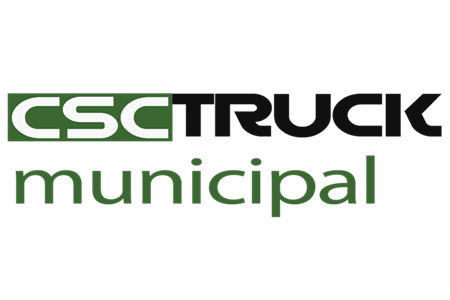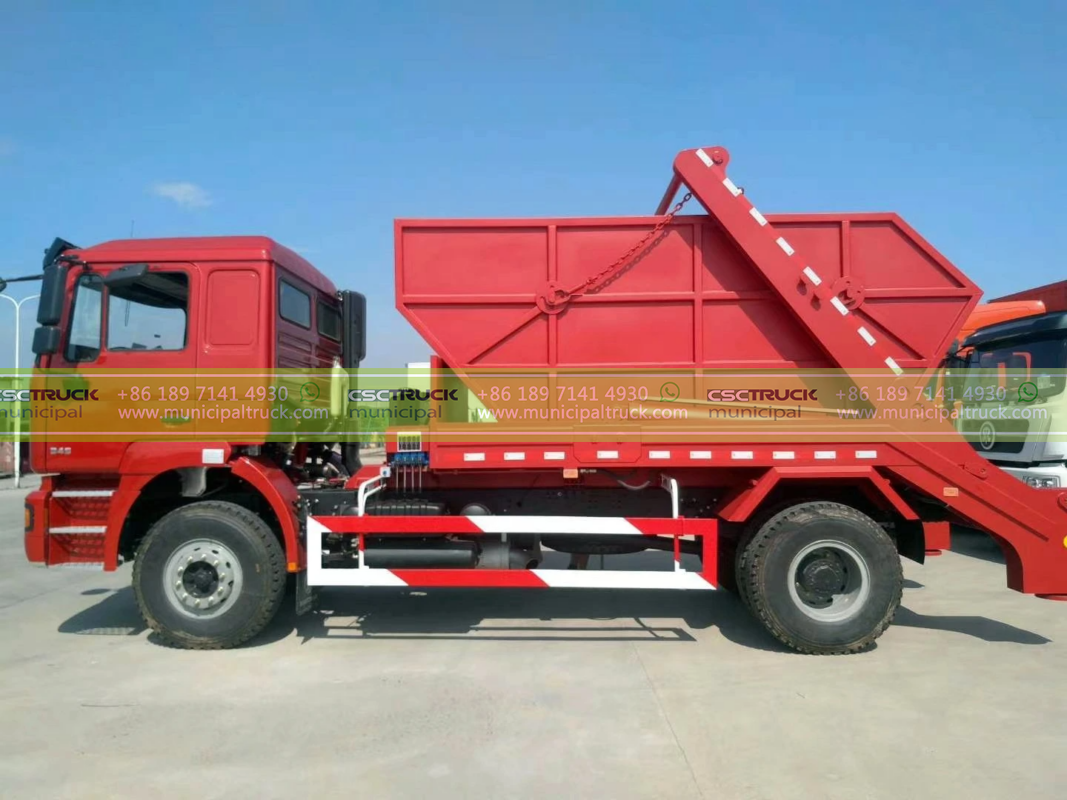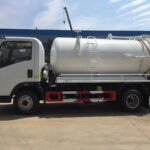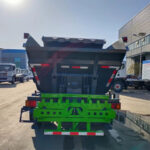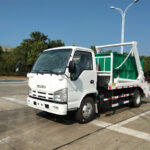In the landscape of modern urban waste management, skip loader garbage trucks have emerged as transformative vehicles, effectively addressing the challenges associated with waste disposal in densely populated areas. Combining functionality, efficiency, and adaptability, these trucks are not only streamlining waste collection processes but also enhancing the overall effectiveness of urban sanitation strategies. This article explores the multifaceted advantages of skip loader garbage trucks, their operational mechanisms, design features, and their impact on urban waste disposal systems.
Understanding Skip Loader Garbage Trucks
Definition and Mechanism of Operation
Skip loader garbage trucks are specialized vehicles designed for the efficient collection, transport, and disposal of solid waste, particularly in urban environments where space and accessibility are significant concerns. These trucks are equipped with a unique loading mechanism that allows them to lift and transport skip bins, or containers, filled with waste materials. The hydraulic system utilized in skip loaders provides the necessary power to tilt, lift, and lower these containers, enabling quick and effective loading and unloading operations.
Key Components of Skip Loader Trucks
The essential components of skip loader garbage trucks include a robust chassis, a powerful engine, hydraulic lifting systems, and specialized skip bin attachments. The chassis is designed to support the weight of both the truck and the loaded skip bin, ensuring stability during transport. The hydraulic system is integral to the operation of the truck, allowing for precise control when maneuvering the skip bins. Additionally, various attachment options are available, enabling customization to suit different waste types and collection needs.
Advantages of Skip Loader Garbage Trucks
Enhanced Efficiency in Waste Collection
One of the most significant benefits of skip loader garbage trucks is their ability to enhance the efficiency of waste collection operations. With their hydraulic lifting systems, these trucks can quickly load and unload skip bins without requiring extensive manual labor. This automation reduces the time spent on each collection route, allowing for a more streamlined process that increases the overall productivity of waste management crews. As a result, municipalities can service more locations within the same time frame, ultimately improving waste collection rates.
Versatility in Waste Handling
Skip loader garbage trucks are incredibly versatile, capable of handling a wide range of waste materials. Whether it be construction debris, household refuse, or organic waste, these trucks can be fitted with various skip bin sizes and types, making them suitable for diverse waste collection scenarios. This adaptability is particularly advantageous in urban environments where different types of waste are generated, enabling a single vehicle to address multiple waste management needs without requiring different trucks for different waste types.
Reduced Manual Labor and Increased Safety
The automated loading and unloading mechanisms of garbage trucks significantly reduce the need for manual labor, which not only enhances operational efficiency but also increases safety for waste collection workers. Traditional waste collection often involves heavy lifting and physical strain on workers, leading to potential injuries and long-term health issues. By minimizing manual handling, skip loader garbage trucks create a safer working environment, allowing crews to focus on their tasks without the risks associated with lifting heavy bins.
Operational Features and Innovations
Advanced Hydraulic Systems
At the heart of skip loader garbage trucks lies their advanced hydraulic systems, which are engineered to provide powerful lifting capabilities. These systems enable operators to lift skip bins weighing thousands of kilograms with ease, ensuring that even the heaviest loads can be managed efficiently. The hydraulic systems also allow for precise control during the loading and unloading processes, reducing the risk of spills or accidents.
User-Friendly Controls and Automation
Modern skip loader garbage trucks are equipped with user-friendly control systems that simplify operation for drivers. Many models feature automated functions that allow operators to manage the lifting and lowering of skip bins with minimal manual input. These advancements not only improve efficiency but also reduce the potential for human error during operation, contributing to safer waste collection practices.
Integration of Telematics and Monitoring Systems
In the age of smart technology, skip loader garbage trucks are increasingly incorporating telematics and monitoring systems. These technologies provide real-time data on vehicle performance, fuel consumption, and operational efficiency, enabling waste management authorities to optimize routes, track performance metrics, and identify areas for improvement. By utilizing this data, municipalities can enhance their waste management strategies and ensure that resources are allocated effectively.
Environmental Impact of Skip Loader Garbage Trucks
Contribution to Sustainable Waste Management
As cities grapple with growing waste generation, skip loader garbage trucks play a pivotal role in promoting sustainable waste management practices. By facilitating efficient waste collection and disposal, these vehicles help reduce the likelihood of littering and illegal dumping, which are significant challenges in urban areas. Furthermore, the ability to collect and transport various waste types with a single vehicle encourages recycling initiatives, as different materials can be sorted and processed appropriately.
Minimizing Carbon Footprint
In addition to enhancing operational efficiency, skip loader garbage trucks can also contribute to reducing the carbon footprint associated with waste collection. By improving route optimization and reducing the number of trips required for waste collection, these trucks help decrease fuel consumption and associated emissions. This is particularly important in urban environments, where air quality is often compromised by vehicular emissions. As municipalities strive to meet sustainability targets, adopting skip loader trucks can significantly aid in minimizing the environmental impact of waste management operations.
Enhancing Recycling and Resource Recovery
The versatility of skip loader garbage trucks extends to their role in supporting recycling and resource recovery efforts. By enabling the collection of recyclable materials alongside general waste, these trucks facilitate the segregation of materials at the source. This capability is essential for municipalities aiming to increase their recycling rates and reduce the volume of waste sent to landfills. Furthermore, the efficient handling of recyclables through skip loader trucks can streamline the entire recycling process, ensuring that valuable materials are recovered and repurposed.
The Role of Skip Loader Trucks in Urban Development
Addressing Waste Challenges in Growing Cities
As urban areas continue to expand, the challenges associated with waste management become increasingly complex. Skip loader garbage trucks offer a practical solution for addressing these challenges, allowing municipalities to efficiently manage waste in densely populated environments. The ability to quickly and effectively collect waste from various sources ensures that cities can keep pace with population growth while maintaining cleanliness and sanitation standards.
Supporting Construction and Renovation Projects
In urban settings, construction and renovation projects generate significant amounts of debris and waste. Skip loader garbage trucks are particularly well-suited for managing this type of waste, providing construction companies and contractors with an efficient means of disposing of materials. By integrating skip loader trucks into construction waste management plans, cities can ensure that debris is removed promptly, minimizing disruptions to surrounding neighborhoods and maintaining public safety.
Fostering Community Engagement in Waste Management
The visibility and efficiency of skip loader garbage trucks can also foster community engagement in waste management initiatives. As residents witness the prompt collection of waste and the commitment to cleanliness in their neighborhoods, they are more likely to participate in recycling programs and community clean-up efforts. This sense of shared responsibility contributes to a more sustainable urban environment and enhances the overall quality of life for residents.
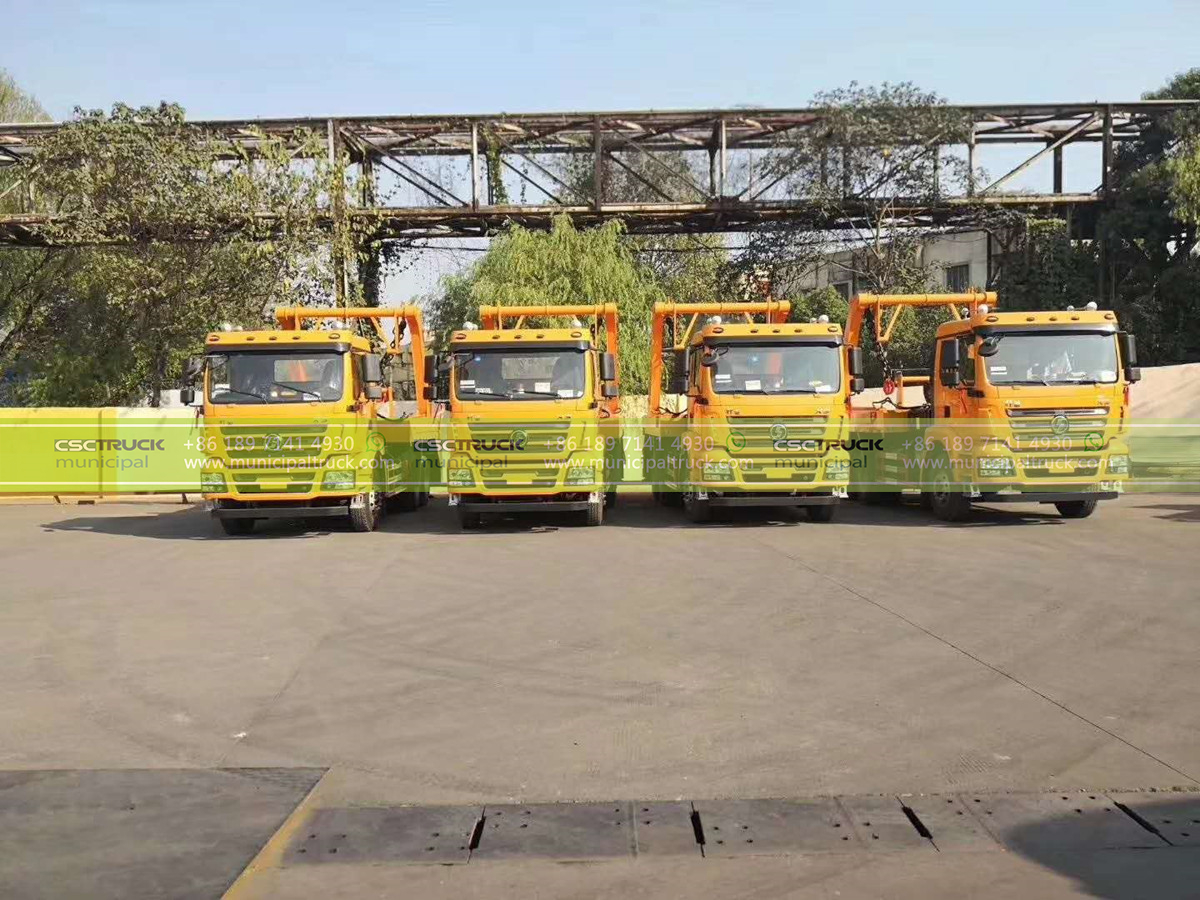
Challenges and Considerations
Initial Costs and Budget Constraints
While skip loader garbage trucks offer numerous benefits, municipalities may face challenges associated with the initial costs of acquiring these vehicles. Budget constraints can be a significant barrier, particularly for smaller cities or those with limited funding for waste management initiatives. To address this challenge, municipalities must explore potential funding sources, grants, and partnerships that can facilitate the acquisition of skip loader technology.
Training and Skill Development
The advanced features and mechanisms of skip loader garbage trucks necessitate comprehensive training for operators. Waste management authorities must invest in skill development programs to ensure that drivers are proficient in operating the vehicles and utilizing their various functions. This investment in training is critical for maximizing the effectiveness of skip loader trucks and ensuring safe operation in urban environments.
Maintenance and Longevity Considerations
Like any specialized equipment, skip loader garbage trucks require regular maintenance to ensure optimal performance and longevity. Municipalities must establish maintenance protocols to address wear and tear, particularly concerning hydraulic systems and loading mechanisms. Proper maintenance practices not only extend the lifespan of the vehicles but also enhance operational efficiency, reducing the likelihood of breakdowns during waste collection operations.
The Future of Skip Loader Garbage Trucks
Innovations in Design and Technology
As waste management practices continue to evolve, skip loader garbage trucks are likely to undergo further innovations in design and technology. Future models may incorporate electric or hybrid propulsion systems, reducing reliance on fossil fuels and minimizing emissions. Additionally, advancements in materials and engineering could lead to lighter, more efficient trucks that enhance fuel efficiency and overall performance.
Integration with Smart City Initiatives
The future of skip loader garbage trucks is closely tied to the broader trend of smart city initiatives. By integrating these vehicles into smart waste management systems, municipalities can leverage data analytics and real-time monitoring to optimize waste collection routes and schedules. This approach not only improves efficiency but also enhances service delivery to residents, ensuring that waste management systems are responsive to community needs.
Expansion of Application Areas
As urban environments continue to diversify, the application areas for skip loader garbage trucks are likely to expand. From residential neighborhoods to commercial districts and construction sites, these versatile vehicles can adapt to various waste management scenarios. This adaptability positions skip loader trucks as essential tools for addressing the evolving challenges of urban waste disposal in the coming years.
In summary, skip loader garbage trucks are revolutionizing urban waste disposal by providing efficient, versatile, and eco-friendly solutions that meet the demands of modern cities. Their innovative design features, operational advantages, and positive impact on sustainability make them invaluable assets in the ongoing efforts to enhance urban sanitation and waste management practices.
